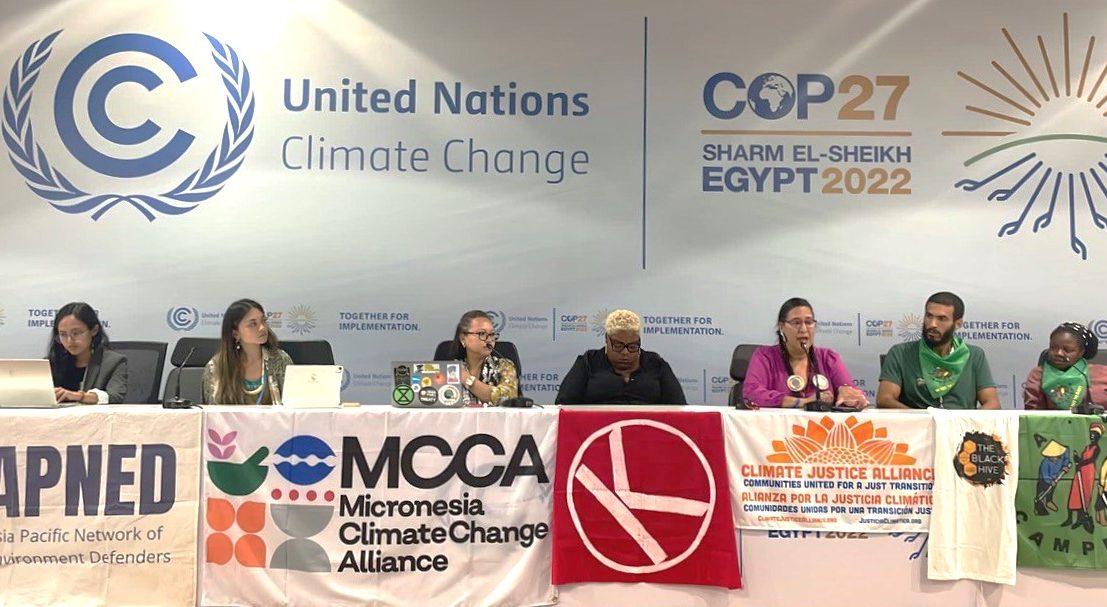
At the heart of our discussions on climate justice lies a truth often overshadowed by broader environmental debates: the ongoing tragedy in Gaza. Fueled by colonialism and a fossil fuel system that perpetuates violence, the genocide happening right now in Gaza underscores the inextricable link between climate justice, gender justice, and the quest for peace. This crisis is not separate but deeply intertwined with the environmental challenges we face globally.
The year 2021 took a significant environmental and financial toll on Malaysia, with losses amounting to $1.5 billion due to devastating floods. This catastrophe highlighted the stark reality of loss and damage attributable to climate change. Yet, the response often leans heavily towards hard solutions — such as the construction of new infrastructure — neglecting the softer yet equally crucial measures like building resilience among communities, especially women, who bear the brunt of these disasters, leaving them to navigate a landscape of trauma and recovery.
The path to genuine climate solutions mandates that human rights and gender considerations be placed not on the periphery but at the core of our strategies. This principle is vital as we advocate for a just energy transition, one that ensures no one is left behind. The injustices of reliance on fossil fuels cannot be perpetuated; justice must be our guiding light.
Our work with Indigenous women through the ‘Sekolah Iklim’ (Climate School) project reveals the harsh realities of mega dam projects on their customary lands.

Documentation by Indigenous young women for a climate-reporting initiative.
These developments not only disrupt the natural environment but also the social fabric of communities, making life increasingly difficult and unsafe for young women. Safe routes vanish, human-wildlife conflicts escalate, and sacred natural entities are lost. This narrative emphasises the need for a comprehensive approach to climate action, one that incorporates justice at every level, ensuring that the solutions we pursue do not replicate the destructive patterns of the past but pave the way for a future where peace, justice, and sustainability are within reach for all.
A key focus must be the often-overlooked aspect of women’s unpaid care work, which becomes increasingly critical in the face of the climate crisis. The International Labour Organisation’s emphasis on recognising and valuing unpaid care work as essential in formulating gender-responsive climate policies calls for creating support systems and infrastructure to alleviate the care burden. This involves integrating these considerations into labour policies and climate action plans, ensuring that policies reflect the realities of all workers, especially those engaged in unpaid care. As part of the Asia Feminist Coalition, we co-produced the document ‘Policy Brief: Towards a Feminist Just Energy Transition in Asia.’ This brief explores pathways towards dismantling current energy systems in favour of ones that embody feminist principles, ensuring a just transition that champions equity and inclusivity.

The KAMY team at Asia Pacific Climate Week 2024 in Johor Bahru, Malaysia.
Malaysia, as a developing nation, stands at a crucial juncture in its journey towards a just transition. The nation’s historical context, marked by colonialism and extractive economic practices, has shaped its labour market and environmental policies. In Malaysia, labour rights are particularly pertinent as the country moves towards greener industries. This transition provides an opportunity to dismantle the legacies of colonialism and develop a more equitable economic system. We believe that embracing gender-responsive and inclusive policies is crucial. It is not merely about fulfilling global obligations but about nurturing a home where every individual, irrespective of gender or social status, has the opportunity to thrive.
For Malaysia, paying attention to gender-responsive and inclusive policies in climate action is not just a global obligation but a national imperative to uplift all segments of society, especially those marginalised in traditional labour markets. This approach will not only foster sustainable development but also promote social justice, ensuring that Malaysia’s path to a low-emission economy is equitable and inclusive.
Klima Action Malaysia (KAMY) is a young feminist-led climate justice organisation based in Kuala Lumpur, Malaysia. Working with vulnerable communities such as Indigenous women and youth, KAMY advocates for a human-rights-based approach to climate action while calling for the declaration of a climate crisis in Malaysia. KAMY is also a partner working closely with IWRAW Asia Pacific under the Voice and Visibility project.

